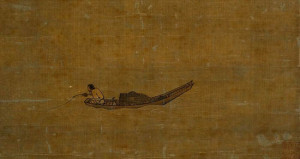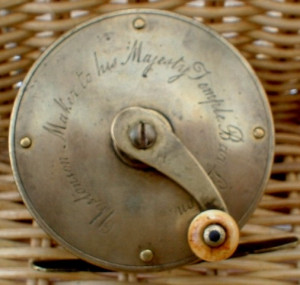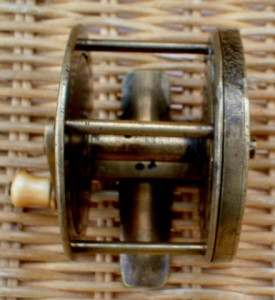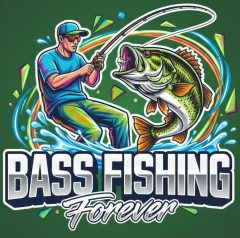Fishing History

Nobody knows when the very first fish was caught using a rod and reel, but we do have a painting “Angler on a Wintry Lake,” painted in 1195 by Ma Yuan, featuring the oldest known depiction of a fishing reel. There is also a description of a fishing reel in China that dates to the 3rd century AD. This is very compelling evidence that fishing has a long history of being a recreational activity.
The main focus of Bass Fishing Forever website will be about the most sought after fish on the planet, The Micropterus salmoides (Lacepede) – Largemouth Bass. That does not mean we will ignore other types of Bass, but the good ol’ Largemouth Bass will dominate (just as it does in the wild)!
Check out these Lew’s reels, our pick for being best for the money
History of Bass Fishing
Bass fishing has a very long and interesting history. Bass fishing’ start can be traced back to the late 18th century, and it has gained popularity steadily since that time. That is not to say that Bass were never caught before that time. This era is when the first commercially sold fishing reels were introduced by a man by the name of Onesimus Ustonson. Some credit him as being the inventor of the fishing reel, but it would be more accurate to say he was the first to sell fishing reels commercially. Onesimus Ustonson established his trading shop in 1761, and this establishment stayed as a market leader for the next century. He also received a Royal Warrant and became the official supplier of fishing tackle to three successive monarchs starting with King George IV over this period. Below are pictures of one of his first fishing reels.


The first people to target Bass, did so for the sole purpose of survival, as a food source. People of the southern United States are believed to be the first to target Bass as a food source. Considering the absolute excitement involved in catching a nice Bass, catching them for sport was inevitable.
Modern Bass Fishing Tournaments
In 1967 a man by the name of Ray Scott came up with the first idea for a modern bass tournament from a hotel room in Mississippi. Later he would draft the rules for competitive bass fishing to foster the ideals of ethical angling, conservation and safety. Those sames rules are still used today all around the world and are still much the same.
In 1968 Ray Scott officially forms and incorporates the Bass Anglers Sportsman Society (B.A.S.S.). Oklahoma’s Don Butler becomes the first B.A.S.S. member after paying Ray Scott $100 for a life membership.
In the spring of 1968, the first issue of Bassmaster Magazine is published.
Other Noteworthy Historic Bass Fishing Events
• Either 1768 or 1770 represents the birth of bass fishing as a sport. Onesimus Ustonson unvieled the first multiplying reel to the fishing public. It was later developed into what is known now as a baitcaster reel.
• William Shakespeare Jr. materializes the production of a level wind device and secured its patent on 1897.
• The William J. Jamison Co introduced the overly ornamented Shannon Twin Spinner in 1915 and was improved to create today’s spinner baits.
• In 1932, President Franklin D. Roosevelt instituted the creation of Tennessee Valley Authority and encouraged the creation and building of numerous dams. These dams were later used for culturing different varieties of Bass.
• In 1937 DuPont Company filed a patent for a nylon fishing net, this was later developed into nylon monofiliment fishing line.
• 1992 is one of the biggest events in the history of bass fishing. Larry Nixon, a very popular professional fisherman, became the first to win $1,000,000 as a Professional Bass Fisherman.
The Most Common Bass Caught in Professional Bass Tournaments
These three Bass are the most often caught Bass in professional Bass fishing tournaments:
• Micropterus salmoides (Lacepede) – Largemouth Bass
• Micropterus dolomieui – Smallmouth bass
• Micropterus punctatus – Kentucky Bass
There are a few other species of Bass (Micropterus) caught in tournaments, but the one Bass that stays at the top of the list is the Largemouth bass.
Fishing impact on the U.S. economy
People who fish (all, not just Bass fishing), number approximately 60 million in the U.S.. Of those 60 million, it is estimated that about 46 million people will fish in a given year. With numbers like that, you can bet there will be a significant amount of collateral economic activity associated with that as well. In fact, Anglers generate about $48 billion in retail sales alone and recreational fishing has a $115 billion impact on the nation’s economy overall. After you also add in more than 828,000 jobs supported through recreational fishing, it is clear that fishing is good for the economy in many ways. So do your part to help our economy in the oldest recreational sporting activity in this country, and go fishing!
